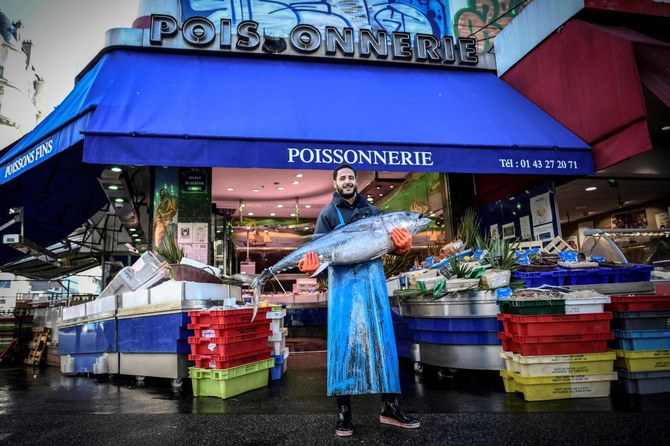PARIS: Coronavirus deaths topped 400,000 Saturday in Europe, the world’s second worst-hit region, as parts of the continent began to reopen shops for the holiday season.
The densely populated Los Angeles county meanwhile announced a ban on gatherings of people from different households under a new “safer-at-home order” to battle the pandemic surging across the United States.
Most nations hope to ease their virus rules for Christmas and New Year, allowing a respite before bracing for what the world hopes is one last wave of restrictions until a clutch of promising new vaccines kick in.
Europe on Saturday crossed a grim barrier, registering 400,649 deaths according to an AFP tally at 0800 GMT.
Britain accounted for almost two-thirds of the fatalities at 57,551, followed by Italy with 53,677, France at 51,914 and Spain with 44,668.
Stores were due to lift their shutters in France on Saturday, while Poland’s shopping centers will also reopen.
Belgium will allow shops to reopen from December 1, but keep the current semi-lockdown in place possibly until mid-January. The move mirrors similar easing in Germany, Luxembourg and the Netherlands.
Ireland has also announced a staggered easing of restrictions to allow some businesses to reopen and for families to gather ahead of Christmas.
Taoiseach Micheal Martin said the upcoming festive period “cannot and will not be the kind of Christmas we are used to” but added the easing of restrictions would offer “some respite from the hardships of 2020 and in particular, the last six weeks.”
Germany, once a beacon of hope in Europe’s coronavirus nightmare, logged more than one million cases on Friday.
Although the virus spread is slowing thanks to weeks of tough restrictions, Europe remains at the heart of the pandemic, recording more cases than the United States in the past week.
Germany’s Robert Koch Institute recorded more than 22,000 new daily cases on Friday, pushing the overall total in the country beyond the one-million mark.
More worryingly, the number of Covid-19 patients in intensive care has soared from around 360 in early October to more than 3,500 last week.
The United States surpassed 13 million total cases on Friday — the world’s highest figure — and officials were concerned whether gatherings on Thursday for the Thanksgiving holiday would further worsen the situation.
The virus clouded the traditional “Black Friday” shopping day, but experts were expecting strong online sales.
Worry over the virus’s rapid spread led Los Angeles county to announce a temporary ban on gatherings of people from different households, with religious services and protests exempt.
The order affecting the United States’ second-largest city will take effect Monday and last at least three weeks, until December 20, the county’s public health department said.
California last week imposed a night-time curfew across much of the state.
Further north in Canada, whose largest city Toronto is under lockdown, Prime Minister Justin Trudeau announced that a general who led NATO’s mission in Iraq as well as Canadian troops in Afghanistan and Bosnia would spearhead a gigantic vaccination drive.
“This will be the biggest immunization in the history of the country,” Trudeau said.
The pandemic is spreading fastest in Asia and Latin America, and is up by a worrying 113 percent over the week in Mexico.
Globally, more than 1.4 million deaths and 61 million infections have been officially recorded, although the real numbers are unknown since testing and reporting methods vary greatly.
With the virus on the march and the rollout of the first vaccines not expected until next month, much of the world faces a gloomy winter under more lockdowns, with an accompanying increase in economic anxiety and mental strain.
Lockdown fatigue is spreading even as governments unfurl new measures to save health care systems from collapse.
One hairdresser in northern England has become a cause celebre among social media libertarians after stacking up fines totalling £17,000 ($23,000), invoking the Magna Carta of 1215.
Law enforcers have taken a dim view, meting out fines and reminding all businesses that legislation of this year, not 800 years ago, is relevant and binding.
Nations are now trying to gauge how people, exhausted by one of the most traumatic years in generations, can enjoy a small holiday break without making things worse.






















